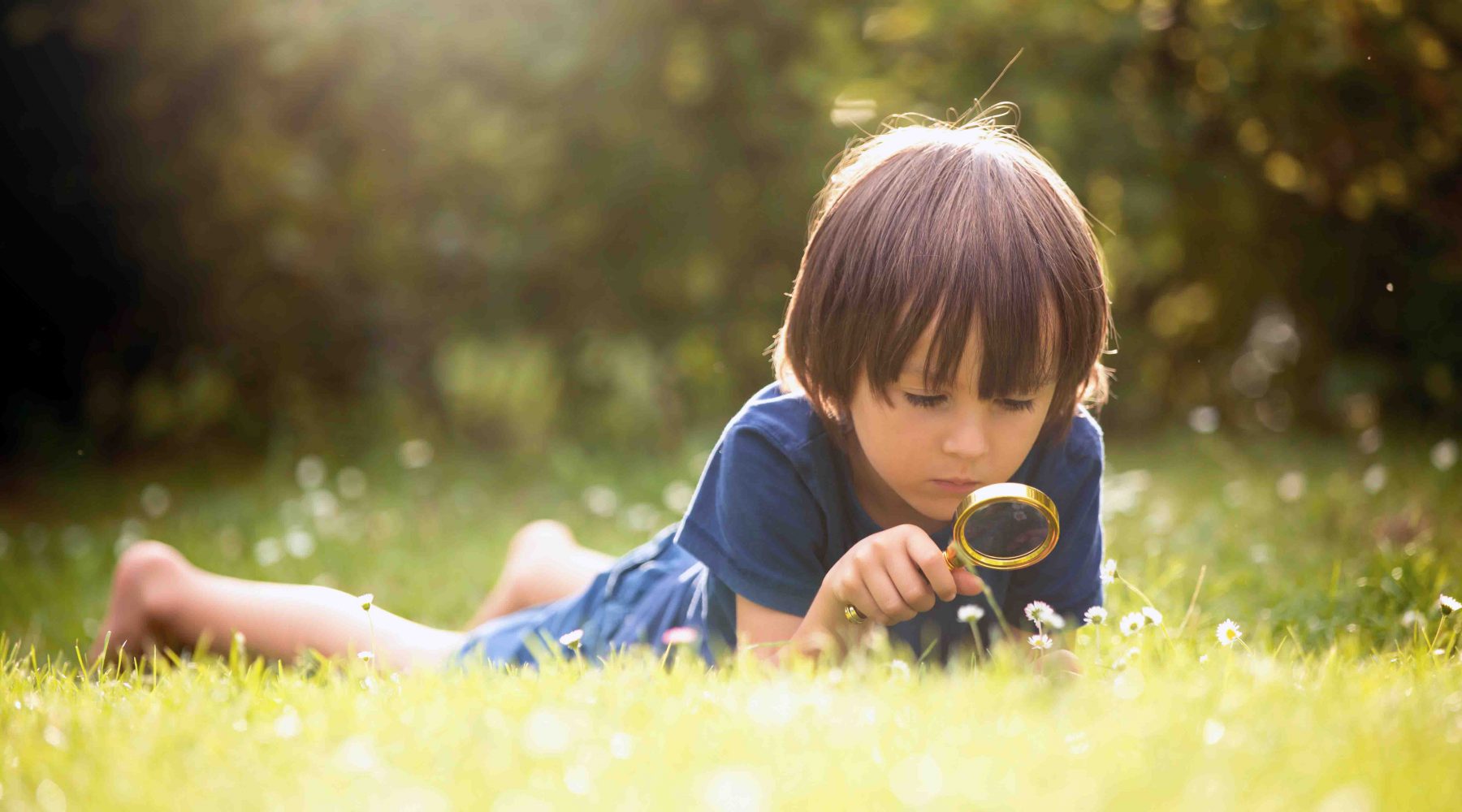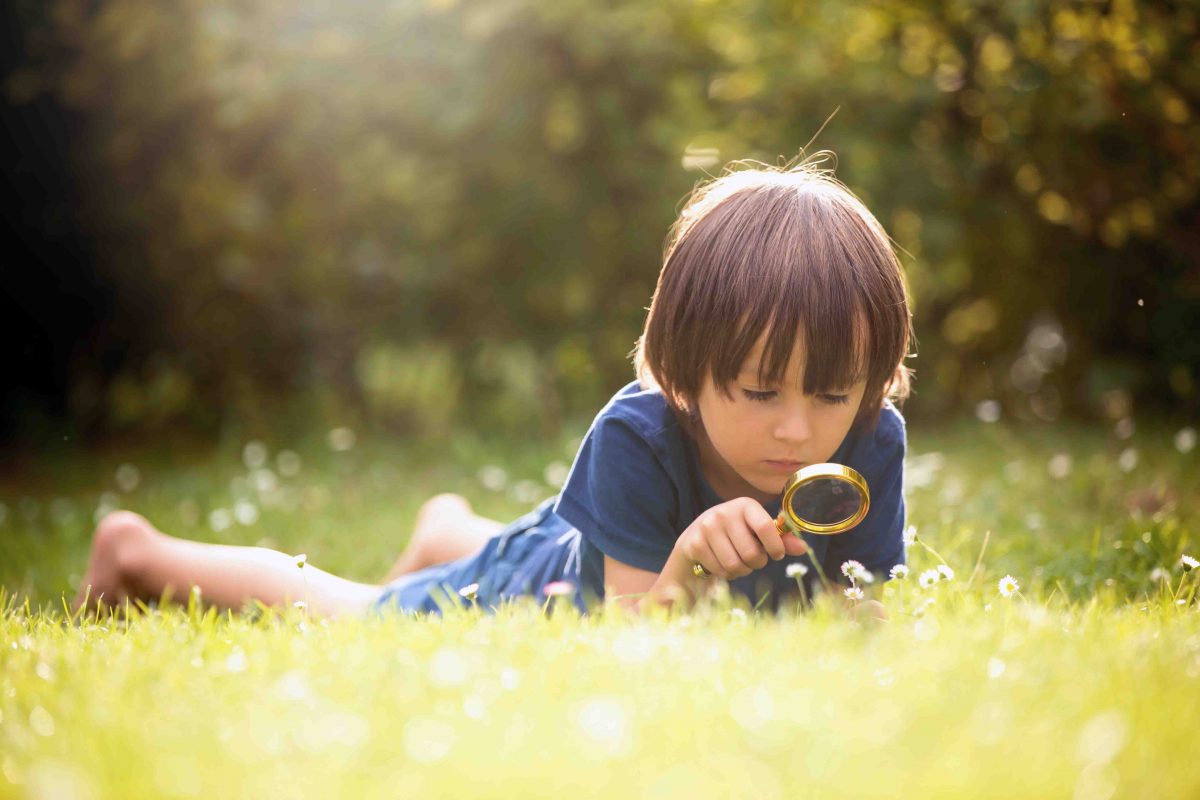
Diane Bourke explains how fostering curiosity in children will create a love of learning.
Eleanor Roosevelt once declared, ‘I think at a child’s birth, if a mother could ask a fairy godmother to endow it with the most useful gift, that gift would be the gift of curiosity.’ The good fairies bestow upon Sleeping Beauty the gifts of beauty, wit, grace, virtue, song, dance and riches. How could they have ignored curiosity?
Curiosity involves genuinely wanting to know more about something, creating openness to unfamiliar experiences. It starts with an itch to explore, a hidden force that drives learning. It lays the groundwork for greater opportunities to experience joy and delight. When curiosity is piqued learning is a snap and recalling new information comes more readily.
The American neurologist and learning expert Dr Judy Willis found that curiosity can improve learning because it stimulates the brain’s reward system. Each time children explore and discover, their brains reward them with a pleasure hit of dopamine, a neurotransmitter found in the brain.
According to Dr Willis, the brain produces an even larger dopamine surge when it makes a prediction and gets it right or defeats a challenge. Since the brain relishes complexity, we should not be afraid to challenge our children with a range of problems to solve. When you allow your children to explore and go where their imagination takes them you are linking them to a positive addiction for learning.
Along the same lines, a 2014 study in the journal Neuron found that people who were curious about a subject learned more and remembered more information than others not so curious.
Dr Charon Ranganath, from the University of California Davis, explains it succinctly, ‘Once you light the fire of curiosity you put your brain in a state that’s more conducive to learning. Once you get the “ramp up” of dopamine the brain becomes more like a sponge that is ready to soak up whatever is happening’.
His colleague, Dr Matthias Gruber maintains ‘curiosity may put the brain in a state that allows it to learn and retain any kind of information, like a vortex that sucks in what you are motivated to learn, and almost anything around it’.
Not surprisingly, curiosity has been linked to a wide range of important adaptive behaviours, such as tolerance of anxiety and uncertainty, positive emotions, humour, playfulness and ‘out of the box’ thinking. Even adults feel more alive and engaged when we are curious, our knowledge is built and our intelligence grows. Cultivating an inquiring mind can also help us thrive on uncertainty and live a happier, healthier life.

Parents can play a huge part
Although it requires a conscious and sustained effort, parents can play a huge role in developing their children’s curiosity.
Teodora Gliga, a developmental psychologist from the University of London, says that if babies as young as 12 months are given the object they point to, they learn that the object of pointing is ‘getting’ things. This becomes even more powerful when parents name the object. The infant then comes to think of pointing as a way of getting answers. What happens, however, if they get neither? The answer is unsurprising; they stop asking questions.
Parents should not feel they must have all the answers to questions posed by their children. Instead, parents should revel in the chance to explore activities and answers together. It is also worth remembering that to get the human brain to pay attention to something, it does help if the experience is novel or, even better, complex.
As an aside, it is widely accepted that too much screen time, structured play options, toys with batteries and so forth – whilst fun – can shut down this brain development.
There are many things parents can do that will foster curiosity and a love of learning in their children. For example:
- praise children by describing how their questions, explorations, and investigations are contributing to their own and others’ learning
- answer a question with another question
- compose questions containing what, if, why and how, as rich questions are a vital medium for curiosity
- notice when children feel puzzled and confused, then celebrate this and assist them to move on
- encourage children to tinker
- teach children to be sceptics
- model curiosity
- remember, there are no ‘dumb’ questions
- admit you don’t have the answer when necessary
- read to your child, this releases dopamine too.
By the time children from ‘curious’ households go to school, they truly have a head start on their peers. Be confident knowing that wise teachers actually crave for students that ask questions and explore answers. Your curious children, having absorbed more information from you know more, which in turn means they will find it easier to learn more. The educational psychologist Daniel Willingham sums it up well when he refers to a powerful ‘rich get richer’ effect happening here.
You can play a pivotal role in determining whether your children will become curious teenagers and adults. Are you up for the challenge?
About Diane Bourke
Diane Bourke is a Project Manager for Independent Schools Victoria. She was Head of Junior School, Campbell House, at The Geelong College for 16 years, and most recently, Head of Junior School, Morris Hall, Melbourne Girls Grammar for 15 years.
Like this post? Please share using the buttons located on this page.
Subscribe to The Parents Website

